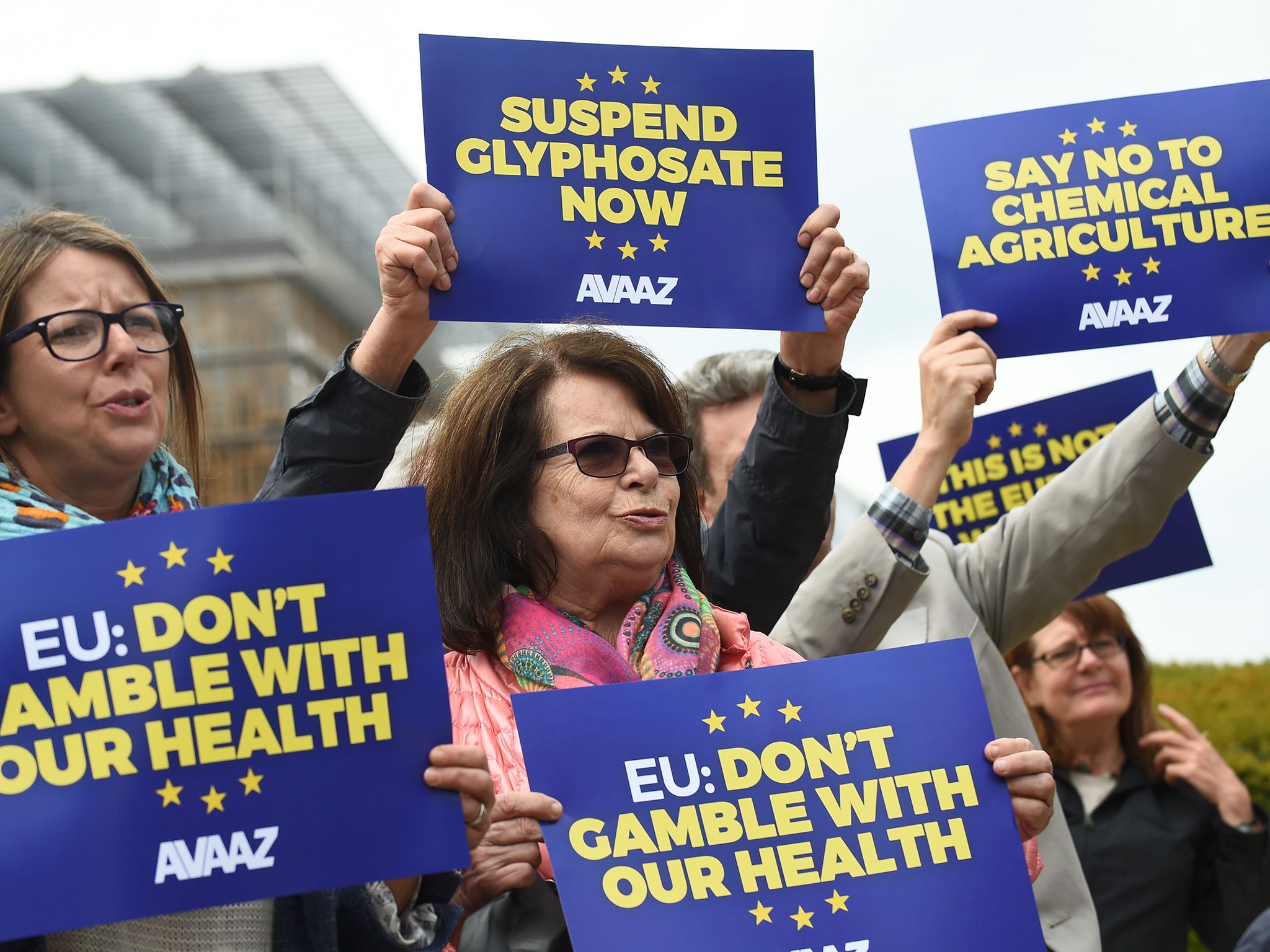EU delays decision on banning glyphosate weed killer despite cancer fears
EU member states have decided not to vote on whether to extend the license the popular agricultural chemical

Your support helps us to tell the story
From reproductive rights to climate change to Big Tech, The Independent is on the ground when the story is developing. Whether it's investigating the financials of Elon Musk's pro-Trump PAC or producing our latest documentary, 'The A Word', which shines a light on the American women fighting for reproductive rights, we know how important it is to parse out the facts from the messaging.
At such a critical moment in US history, we need reporters on the ground. Your donation allows us to keep sending journalists to speak to both sides of the story.
The Independent is trusted by Americans across the entire political spectrum. And unlike many other quality news outlets, we choose not to lock Americans out of our reporting and analysis with paywalls. We believe quality journalism should be available to everyone, paid for by those who can afford it.
Your support makes all the difference.EU nations have postponed a vote on whether to ban the continued use of the popular weed killer glyphosate amid concerns about its possible links to cancer.
EU member nations decided not to vote on extending the weed killer's license after the European Parliament backed a move to limit a license renewal to five years. The EU's executive Commission had earlier proposed a license extension of ten years.
The next meeting to make a decision will likely be on 6 November, officials said.
The Commission last year gave a limited 18-month extension for glyphosate, pending more detailed advice on the impact of the weed killer. That license expires by the end of the year.
Many argue there are too many uncertainties about the health effects of the weed killer. Glyphosate is an ingredient in Monsanto's Roundup, a popular weed killer across the globe.
Environmentalists want a ban as soon as possible while the EU's farmer's union wants a 15-year extension.
"The Commission will continue to work with the member states to find a solution that enjoys the largest possible support, which ensures a high level of protection of human health and the environment," said EU Commission spokeswoman Anca Paduraru.
Activists protested outside EU headquarters where the officials met.
David Schwartz, a campaigner for the WeMove.EU group, said it has filed a European citizen initiative signed by 1.3 million people asking for a full ban on glyphosate.
The GTF industry group, which includes Monsanto, said in a statement that the continued uncertainty and delays were "discriminatory and unacceptable".
It said the long approval process "threatens to put European agriculture at competitive disadvantage" and puts at risk "investments in Europe to the detriment of the farming community".
AP
Join our commenting forum
Join thought-provoking conversations, follow other Independent readers and see their replies
Comments